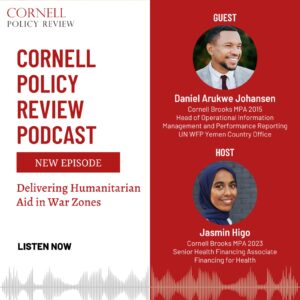Photo: Protesters mobilizing for the release of Asia Bib in Lahore, Pakistan on November 21, 2010 (Mohsin Raza/Reuters)
Written by: Muhammad Ali Ilahi
Edited by: Eghosa Asemota and Kathleen Egan
Pakistan came into the international spotlight in late 2018 after the court ruled on a nine-year-long case against Asia Bibi, a Christian sentenced to death for blasphemy in the country.[1] The highest court of the country reviewed the decision of the lower courts and declared Bibi to be innocent due to insufficient evidence. In the aftermath of the court’s decision, the entire country was shut down by supporters of religious parties who aggressively demanded that the court reverse its decision.[2]
This, yet again, opened the debate about blasphemy laws in the country, and how they are often misused either to target innocent individuals belonging to a religious minority group or for financial gain. The laws range from capital punishment to incarceration for various offenses under the country’s penal codes. These laws sometimes end up violating basic human rights, especially for the minority Ahmadi community who are criminalized for preaching or propagating their faith openly.[3] Furthermore, these laws have played a part in radicalizing factions of society such that the ruling is not accepted by right-wing religious parties who threaten to take the law into their own hands.
In the country’s 2018 general elections, several religious political parties promised stricter enforcement of blasphemy laws and subsequently ended up receiving a large number of votes.[4] Such a scenario, where blasphemy laws are supported by popular vote, has made it even more difficult for the national government to amend them over time. Pakistan was also blacklisted by the United States late last year in December 2018 for religious freedom violations, illustrating the mounting Western pressure put on the country to reform its blasphemy laws.[5] Because of these events and increasing intolerance in the country, it becomes all the more pertinent for the Pakistani government to intervene. In order to ensure an inclusive and healthy society, there is a need for the government to impose strict regulations against the misuse of blasphemy laws. Discriminatory laws that promote persecution such as the ones against the minority Ahmadiyya community must be immediately repealed to ensure equal citizenship rights for all citizens.
An Overview of Pakistan’s Blasphemy Laws
Blasphemy laws were originally introduced in 1927 before the independence of India and Pakistan when the region was still under colonial rule.[6] At that time, the laws were equally applicable to all citizens of the British Raj and did not target any particular community or religious ideology. Most of the additions to these laws which specifically target religious minorities, however, were introduced by former dictator Zia-ul-Haq who ruled the country from 1977 until 1988. These additions included capital punishment for anyone involved in the blasphemy of the Prophet of Islam, life sentences for anyone who defiled the Quran, and prison sentences and fines for other religious offenses. These laws also made it an offense for Ahmadis to identify as Muslims, punishable by either three years imprisonment, a fine, or both.[7] Ahmadis subscribe to the Ahmadiyya sect, a reform movement within Islam, the foundation of which was laid down by Mirza Ghulam Ahmad in the late nineteenth century in India. The sect is considered heretical by mainstream Muslims due to the Ahmadi belief that their founder was the second coming of Jesus which goes against the principle of finality of Prophethood as understood by the majority of Muslims.[8]
Historical Context: Blasphemy Laws Linked with Increased Radicalization
Pakistan is a signatory of the Universal Declaration of Human Rights, Article 18 of which emphasizes the “right of freedom of thought, conscience and religion” and the freedom to practice and observe one’s religious practices. However, anti-Ahmadi laws that are part of Pakistan’s Penal Code go against this Article by barring the group’s right to identify and practice as Muslims.
A brief analysis of blasphemy cases recorded in the past paints a very grim picture of the way blasphemy laws are being used currently. From their introduction in 1927 until 1986, only fourteen blasphemy cases were reported. However, this number swelled to over 1,500 in 2017.[9] These laws tend to target non-Muslim minorities disproportionately. Although non-Muslims make up only four percent of Pakistan’s population, about fifty percent of the blasphemy cases in the country have been reported against them.
Within a context of pervasive discrimination, even an allegation of blasphemy sounds a death knell for the accused because vigilante justice normally precedes legal action. Examples of this may beobserved in the lynching cases of the student Mashal Khan in Mardan and the Christian couple Shama and Shahzad Masih near the town of Sheikhupura. From 1927 to 2018, fifty-one people have been murdered before their blasphemy trials were over.[10]
Legislative Failures
Despite repeated suggestions of introducing harsh penalties for anyone who wrongly accuses another person of committing blasphemy, the legislative bodies in Pakistan have failed to pass such a law. Efforts were made to introduce a bill by the country’s Senate that advocated for the same punishment for those who falsely accused another person of blasphemy as for those that actually committed the crime. Once the gesture was met with intense public critique, the current government’s senators requested to withdraw the bill.[11] The country’s parliament has been marked by its reluctance to make progressive strides towards an equal and non-discriminatory society.
Compounding this reluctance is the second amendment of Pakistan’s constitution, introduced in 1974, which explicitly declares Ahmadis as non-Muslims, effectively violating their basic human right to self-identify.[12] This legislative environment, motivated by the desires and influence of religious clergy, makes the targeting and discrimination of Pakistani Ahmadis ceaseless.
Dr. Atif Mian, State Neglect and Institutional Discrimination
The new administration that came into power in 2018, promised to bring in a team that would be based on merit rather than political nepotism. Dr. Atif Mian, an economics professor at Princeton University and the author of the well-known book House of Debt which discusses the mortgage crisis in the United States, was placed on an eighteen-member economic advisory council for Pakistan. The job of this council was to advise the Prime Minister and the Finance Minister on economic and financial matters. However, there was a massive outcry from religious parties who threatened to rally in the streets if Mian was not removed from office due to his Ahmadi faith. The government’s initial reaction was to keep Dr. Mian on the council. In fact, the country’s Information Minister shared sentiments that Pakistan belongs to all, irrespective of their religious beliefs. However, within twenty-four hours of this statement, in the face of mounting pressure from right-wing religious parties, the government changed its position. Dr. Mian was requested to step down in order to avert a public “law and order” situation.[13] Hate and intolerance of this extent, where people are prevented from serving in positions of power based on their beliefs rather than their merit and skills, has resulted in a large number of the country’s Ahmadiyya community to leave the country and seek refuge abroad.[14]
The government has not only declared the Ahmadis as non-Muslims and banned them from acting or identifying as Muslims, it has also made clear that an Ahmadi has no place in the top echelons of the country’s military, bureaucracy, or government due to their faith. Although the Ahmadi community gave the country its first Nobel Laureate and foreign minister, as well as played a vital role in the country’s creation, their persecution has been neglected or exacerbated by the state.[15] In addition to the Ahmadis, Christians, Hindus, and other minorities too sometimes find themselves treated as second-class citizens. For example, the constitution makes it impossible for a non-Muslim to serve as the head of the country, effectively instituting barriers that limit the minority group’s possibilities.
The Popularity of the Religious-Right
In addition to state neglect and institutional discrimination, the harm waged on religious minorities has facilitated the popularization of radical, religiously bigoted political parties. This popularity can be gauged from the 2018 general elections. Tehreek e Labbaik, one religious political party led by a firebrand cleric, Khadim Hussain Rizvi, bases its entire political platform on strengthening blasphemy laws in the country and earned over two million votes.[16] Muttahida Majlis–e–Amal (MMA), a political conglomerate of several far-right conservative religious groups, managed to secure over two and a half million votes.[17] Since these parties presented no practical economic or social solutions apart from their emphasis on being the protectors of religion and promoting intolerance against minorities, they ultimately failed to secure a majority of the electorate. Parties such as these are an obstacle toward the reform of blasphemy laws in the country, and often threaten to shut down the country using their immense local-level power and influence, whenever any efforts are made to rectify such legislation.
Efforts Towards De-Radicalization
To address rising intolerance in Pakistan’s society, several measures proposed by human rights agencies and social policy experts have been suggested. A common recommendation is for the state to adopt pro-equity legislation that safeguards against the influence of religious and interest groups, forcing state actors to remain impartial in its treatment of all citizens.
Even if all discriminatory legislation is repealed and replaced, addressing the stain of intolerance fueled by the decade-long state policy of indoctrination will take a more holistic approach. Eminent Pakistani historians like K.K. Aziz have highlighted how the country’s textbooks promote a version of history that reinforces intolerance and sometimes hatred towards minorities.[18]
To make tolerance a norm and foster the acceptance of diversity and differing opinions, curriculum reform at the most basic level of education is needed to impart a more rational and secular way of thinking for the country’s next generation. The Ministry for Education can potentially play a huge role by introducing new narratives in compulsory Pakistani history classes that focus more on celebrating diversity and bridging differences rather than reinforcing divide and spreading hatred. The Ministry of Religious Affairs and Interfaith Harmony also needs to be taken on board as one-tenth of the children in the country are enrolled in religious seminaries locally known as ‘madarassas’.[19] These madrassas often end up becoming hotbeds of intolerance as their curriculum tends to be more conservative than the parallel national education board system.
Similarly, there is a need to promote a more tolerant and progressive interpretation of Islam to act as a counter to the more hardline, extremist narratives. This can be achieved by encouraging progressive religious scholars that focus on peace and harmony like Ghamidi, using a policy similar to “Enlightened Moderation” that was introduced by President Pervez Musharraf in 2004.[20] This was an effort to modernize the approach of the population towards religion in order to give rise to a more rational mindset. Scholars such as Ghamidi also strongly criticize the blasphemy laws as being un-Islamic, as according to their interpretation, blasphemy is not a punishable offense in Islam. Such a school of thought needs to be mainstreamed through print, electronic, and social media by the government, as it has the potential to shift the way the masses think about blasphemy. It is only through a top-down, soft approach of de-radicalization that the issue of fanatic religiosity can be addressed at a larger scale in the country.
Conclusion
In the 1980s, blasphemy laws in Pakistan were made a part of state policy. Today, they have stained the country so much so that Pakistan’s top security forces and state factors feel hesitant to act against it. Eminent social policy experts in Pakistan often argue that there are no solutions to this trend of intolerance, as it now resonates with the masses of the country. They also point towards a need to de-radicalize the country using a top-to-bottom soft approach, which requires interventions such as curriculum reformation, and the adoption of pro-equity policies that promote impartiality toward all citizens.[21] Solutions to this issue propose state secularization or, at least, the adoption of a modernized practice of Islam. Without any effective interventions in this regard, the country can expect to see more extrajudicial punishment, an increase in social harm waged on minority groups and the migration of a significant chunk of its educated population as they flee abroad to escape persecution and intolerance.
References
- Barker, M. (2018, October 31). Asia Bibi: Pakistan court overturns blasphemy death sentence. The Guardian. Retrieved from https://www.theguardian.com/world/2018/oct/31/asia-bibi-verdict-pakistan-court-overturns-blasphemy-death-sentence ↑
- Huge protests in Pakistan after Christian woman accused of blasphemy is released from death row. (2018, October 31). Retrieved January 20, 2019, from https://www.independent.co.uk/news/world/asia/asia-bibi-case-protests-pakistan-blasphemy-christian-woman-released-supreme-court-a8610786.html ↑
- The blasphemy law in pakistan – ahmadis | persecution of ahmadiyya muslim community. (2018, April 15). Retrieved January 20, 2019, from https://www.persecutionofahmadis.org/the-blasphemy-law-in-pakistan-ahmadis/ ↑
- Jahangir, R. (2018, August 1). Religious parties clinch over 9pc share of votes in National Assembly. Retrieved January 20, 2019, from https://www.dawn.com/news/1424235 ↑
- US adds pakistan to blacklist for religious freedom violations. (2018, December 11). Retrieved January 20, 2019, from https://www.voanews.com/a/us-adds-pakistan-to-blacklist-for-religious-freedom-violations/4696017.html ↑
- What are Pakistan’s blasphemy laws? (2014, November 6). Retrieved from https://www.bbc.com/news/world-south-asia-12621225 ↑
- What are Pakistan’s blasphemy laws? (2014, November 6). Retrieved from https://www.bbc.com/news/world-south-asia-12621225 ↑
- Who are the Ahmadi? (2010, May 28). Retrieved from http://news.bbc.co.uk/2/hi/south_asia/8711026.stm ↑
- Pakistan’s blasphemy laws, the supreme court, asia bibi and the laws’’ historical background – europe solidaire sans frontieres.” (2018, November 26). Retrieved January 20, 2019, from http://www.europe-solidaire.org/spip.php?article46971 ↑
- Dawn.com. (2012, September 19). Timeline: accused under the blasphemy law. Retrieved January 20, 2019, from https://www.dawn.com/news/750512 ↑
- Hussain, J. (2018, October 13). Key bill seeking strict punishments for false blasphemy accusations withdrawn from Senate on PTI request. Retrieved January 20, 2019, from https://www.dawn.com/news/1438748 ↑
- Saeed, S. (2007), Pakistani Nationalism and the State Marginalization of the Ahmadiyya Community in Pakistan. Studies in Ethnicity and Nationalism, 7: 132-152 ↑
- Bowing to far-right pressure, Pakistan removes Ahmadi adviser. (2018, September 7). Retrieved January 20, 2019, from https://www.aljazeera.com/news/2018/09/bowing-pressure-pakistan-government-removes-advisor-180907070249956.html ↑
- Thousands of Ahmadis fleeing persecution in Pakistan and seeking Asylum overseas. (2016, September 4). Retrieved January 20, 2019, from https://www.rabwah.net/thousands-of-ahmadis-fleeing-persecution-in-pakistan-and-seeking-asylum-overseas/ ↑
- Javed, H. (2018, June 5). Enforced disappearance: Why a whole community is going missing. Retrieved January 20, 2019, from https://herald.dawn.com/news/1398500 ↑
- Chaudhry, R. (2018, August 16). Mobilising the Barelvi vote: is TLP more than a one-hit wonder? Retrieved January 29, 2019, from https://www.dawn.com/news/1427356 ↑
- Khan, I. A. (2018, July 29). PTI secures lead of four million votes over PML-N. Retrieved January 29, 2019, from https://www.dawn.com/news/1423605 ↑
- Paracha, N. F. (2014, April 27). K. K. Aziz: murder he wrote. Retrieved March 3, 2019, from http://www.dawn.com/news/1101992 ↑
- Abbasi, K. (2015, April 22). New report reveals one-tenth of all children enrolled in Madressahs. Retrieved February 24, 2019, from http://www.dawn.com/news/1177473 ↑
- AZIZ, S. (2011). Making a Sovereign State: Javed Ghamidi and ‘Enlightened Moderation’. Modern Asian Studies, 45(3), 597-629. Retrieved from http://www.jstor.org/stable/25835693 ↑
- Nasir, J. (July 2018). Mohammad Jibran Nasir Manifesto Retrieved 24th February 2019, from https://jibrannasir.com/pdf/Jibran_Manifesto.pdf ↑






Good article. You made some good points. The only thing I disagree with is that all state institutions have done nothing. Agreed there is fear among policymakers given the extrajudicial nature of the backlash – and also how the deep state has acted in main streaming some of the bigots is pathetic. Having said that sections of the judiciary and certain political parties have played their part of late to improve the situation. A stand was taken in Asia bibi case and also the hanging of mumtaz qadri – at least setting the precedent that no one is above the law. The only issue is that given the deep-rootedness of the issue change will be slow and gradual like historical processes quite frankly are.